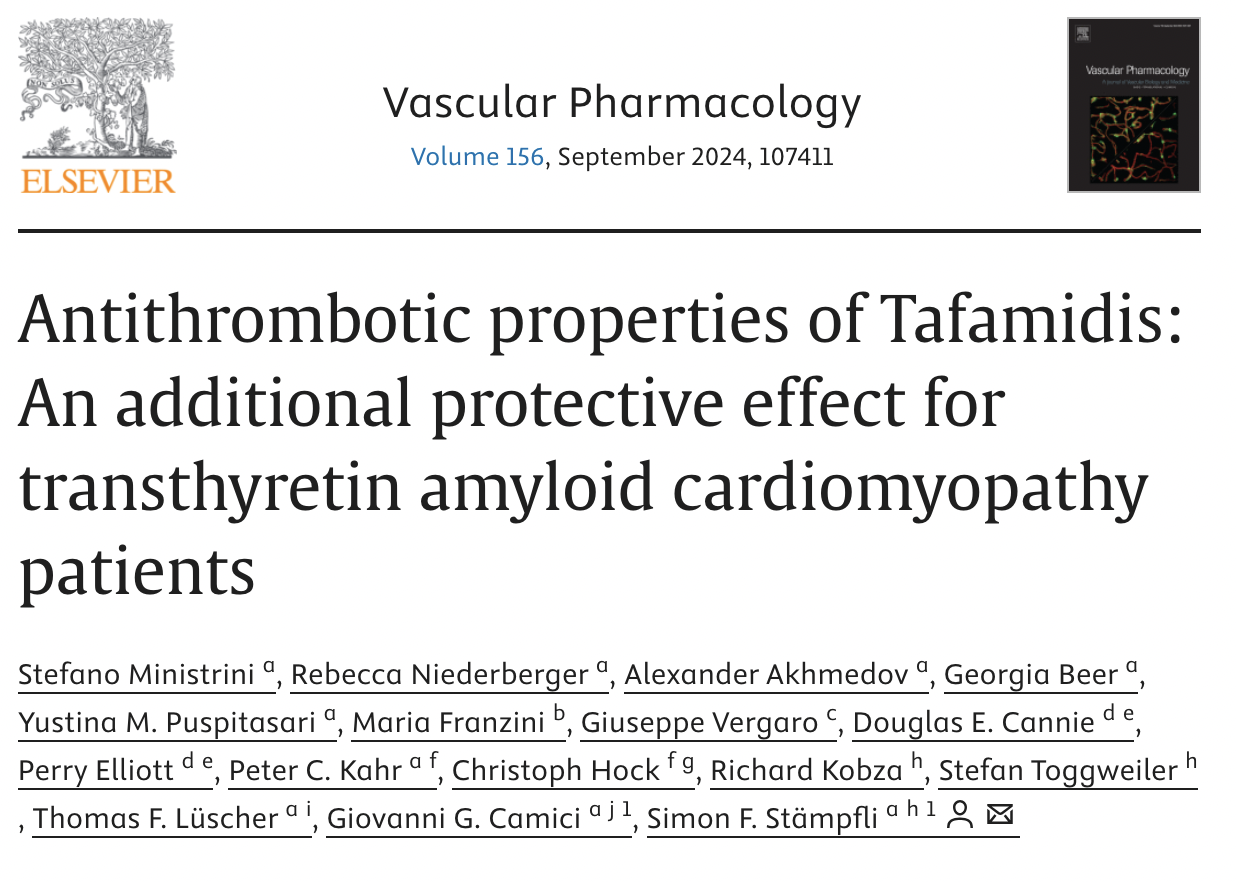Antithrombotic properties of Tafamidis

Tafamidis reduces mortality and the incidence of hospitalization for cardiovascular causes in patients with TTR amyloid (ATTR) cardiomyopathy. As ATTR cardiomyopathy is associated with a high risk of thromboembolic complications, Dr. Stefano Ministrini and colleagues investigated whether tafamidis might have a direct ancillary anti-thrombotic effect.
Primary human aortic endothelial cells (HAECs) were treated with tafamidis at clinically relevant concentrations and with plasma of patients, before and after the initiation of treatment with tafamidis. Treatment with tafamidis dose-dependently reduced the expression and activity of TF. This effect was confirmed in cells treated with patients' plasma. Signal Transducer and Activator of Transcription 3 (STAT3) phosphorylation was significantly inhibited by tafamidis. Incubation of HAECs with tafamidis and the STAT3 activator colivelin partially rescued the expression of TF.
The investigators concluded that treatment with tafamidis lowers the thrombotic potential in human primary endothelial cells by reducing TF expression and activity. This previously unknown off-target effect may provide a novel mechanistic explanation for the lower number of thromboembolic complications in ATTR cardiomyopathy patients treated with tafamidis.